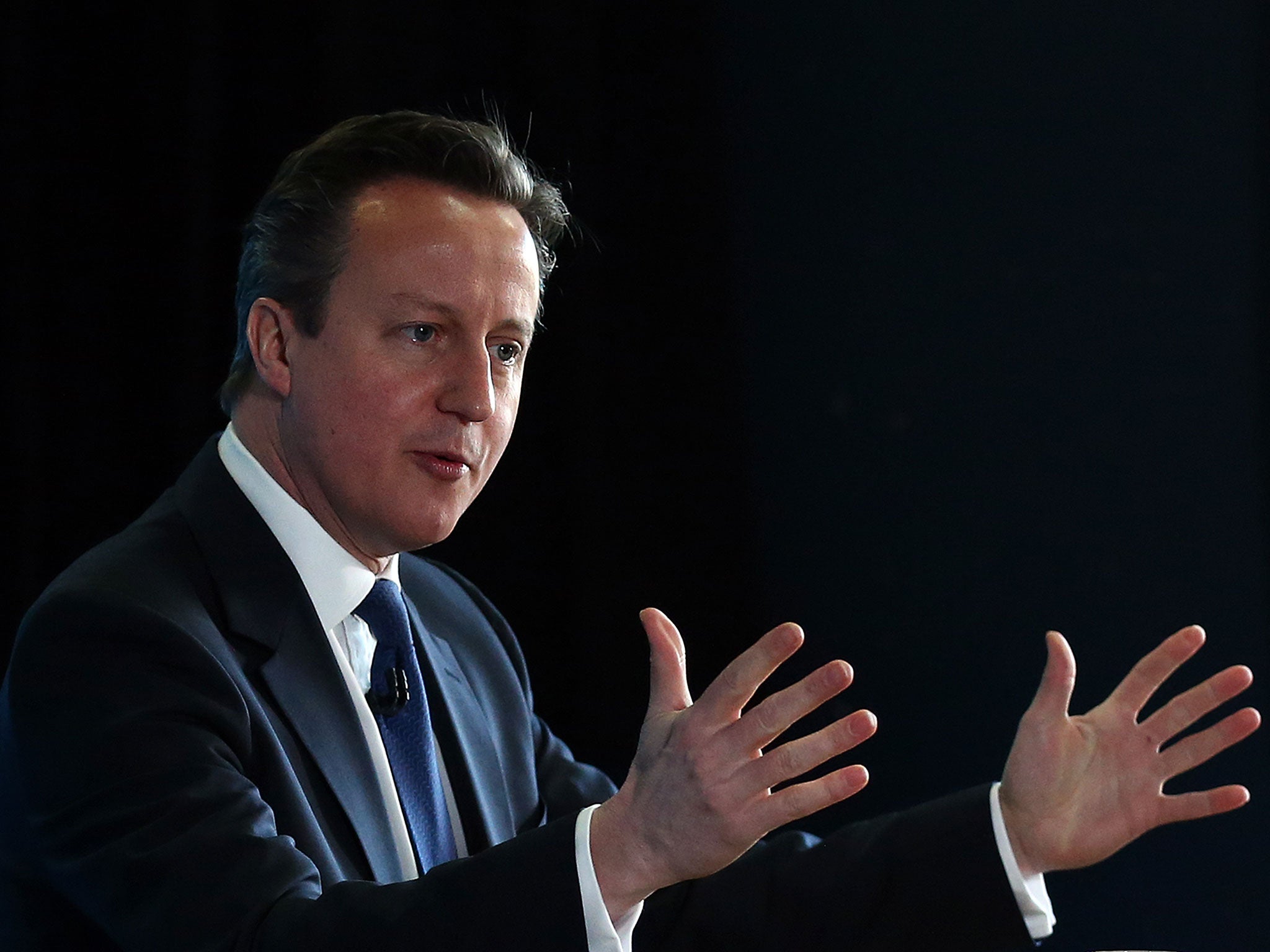General Election 2015: Cameron warns a Labour Government would impose average tax rise of £3,028 on every working household by 2020
Mr Cameron will tell voters: 'In 38 days’ time, you face a stark choice - the next prime minister walking through that door will be me or Ed Miliband'

Your support helps us to tell the story
From reproductive rights to climate change to Big Tech, The Independent is on the ground when the story is developing. Whether it's investigating the financials of Elon Musk's pro-Trump PAC or producing our latest documentary, 'The A Word', which shines a light on the American women fighting for reproductive rights, we know how important it is to parse out the facts from the messaging.
At such a critical moment in US history, we need reporters on the ground. Your donation allows us to keep sending journalists to speak to both sides of the story.
The Independent is trusted by Americans across the entire political spectrum. And unlike many other quality news outlets, we choose not to lock Americans out of our reporting and analysis with paywalls. We believe quality journalism should be available to everyone, paid for by those who can afford it.
Your support makes all the difference.David Cameron will formally launch the general election campaign today with a stark warning that a Labour government would impose an average tax rise of £3,028 on every working household by 2020.
The Prime Minister will visit the Queen at Buckingham Palace this morning to inform her that parliament has been dissolved for the election. In the past, politicians needed the approval of the monarch for a dissolution but under the Fixed-term Parliaments Act 2011, it now happens automatically 25 working days before elections every five years. Later Nick Clegg will visit the Palace in his role as chairman of the Privy Council.
Speaking outside Number 10, Mr Cameron will tell voters: “In 38 days’ time, you face a stark choice. The next prime minister walking through that door will be me or Ed Miliband.”
Under the Conservatives, the economy would grow, create jobs, generate the money to ensure a properly funded NHS and cut taxes for 30m people, he will say. “Or you can choose the economic chaos of Ed Miliband's Britain — over £3,000 in higher taxes for every working family to pay for more welfare and out of control spending. Debt will rise and jobs will be lost as a result.”
Mr Cameron will add: “After five years of effort and sacrifice, Britain is on the right track. This election is about moving forward - and as prime minister here at Number 10 that's what I will deliver.”
The Tories’ new “tax bombshell” calculation is based on Labour clearing half of the deficit through tax rises and half from spending cuts. Labour is bound to dispute the figure, since the party has not announced what proportion of the deficit would be reduced by tax increases or cuts.
Mr Cameron’s strong attack came amid the first signs of jitters among Conservative MPs after a YouGov poll for The Sunday Times put Labour on 36 per cent and the Tories on 32 per cent. Some 49 per cent of people believed Mr Miliband came across best in last week’s TV programme featuring the two leaders, while 34 per thought said Mr Cameron did.
Some Tory MPs want a more positive campaign, saying that “crude” attacks on Labour and a single focus on the economy are not working. “Cameron needs to give us lift-off in the polls; it’s all down to him now,” said one senior backbencher.
There was more confusion yesterday over Mr Cameron’s departure date if he wins a second term in May. Last week he said he would serve “every day” of a full five-year term but that was contradicted yesterday by Iain Duncan Smith, the Work and Pensions Secretary. Asked on the BBC’s Andrew Marr Show whether Mr Cameron has to "stand down at some point during the next Parliament" in order to allow a successor to be in place for the election, Mr Duncan Smith replied: “He does.”
He said the Tories might not spell out the details before the election of how they would cut the welfare budget by £12bn if they retain power.
Voters “know for certain that we are going to save that £12 billion. We may, we may not, decide that it's relevant to put something out there about some of those changes,” he said.
Join our commenting forum
Join thought-provoking conversations, follow other Independent readers and see their replies
Comments